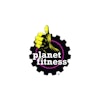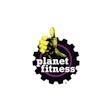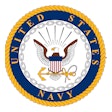Your facility can create additional profit centers by offering fee-based programs for members who require special workout programs and/or social support.
Hundreds of thousands of people each year are diagnosed and continue to live with chronic diseases. These people, whether previously active or sedentary, are often left to fend for themselves in terms of exercise that meets their specific objectives. Designing specialty programs for clients with specific medical limitations is a potentially rewarding niche for both your members and your business.
Implementing diabetes-, Parkinson's- and cancer-specific protocols, just to name a few, can position your facility and your staff as credible sources of information and support in your community.
The opportunities
Opportunities abound for programs that your facility could offer to your members who need special attention. Programs include those for people with diabetes, Parkinson's, heart disease, obesity, balance issues, and other physical or mental disabilities.One example is a program for breast cancer survivors. The post-operative support for women who have breast cancer is limited. Many do not receive physical therapy unless they experience complications from surgery or lymphedema. Most receive a simple handout listing several exercises or stretches they can perform to regain range of motion and eliminate complications. Doreen Puglisi, founder of the Pink Ribbon Program, wanted to change this, and so created a post-operative workout designed to enhance recovery. The certification course for the Pink Ribbon Pilates-based program has trained instructors since 2005.
Whether you plan to design and implement a grassroots program at your facility, or are thinking about offering a program that already exists, there is a win/win in disease-based programming. Your members win because of a program designed specifically with their needs in mind. Without medically based rehab for disease-based programs, it is up to the individual to find adequate support. Fitness centers win with an additional profit center for their facilities, and potential new members who will join the program. They also may gain trust from and a name for themselves in the medical community, and medical professionals may then begin referring their patients to the appropriate program.
Education and certification
How do you get started with a diseased-based program? Brochures and flyers don't matter if the ability to deliver the goods isn't there. Get the education and certification necessary, if there is one in existence already.If there are no certification programs available for your area of interest - for Parkinson's disease, for instance - you will need to create a program based on solid research from medical resources. You may also want to add to your credentials with an advanced certification that targets the unique challenges faced by specific populations in general. The American Council on Exercise's (ACE) Advanced Fitness Specialist is one such certification, and the American College of Sports Medicine (ACSM) offers another.
Opportunity by the Numbers
|
||
Marketing
Once you have the staff with the proper education, you need to educate your members, the public and the medical community about your new program. Package the program in a way that clearly targets the needs of the potential exercisers, and the benefits the program offers. Include information on the training and education of those leading the program.Provide seminars to members and guests that combine your own fitness speaker with outside professionals such as physical therapists, physicians and registered dieticians. To enlist these outside professionals' support initially, you might host an evening event just for them. Present to them the basis of the program, and let them experience the same exercise format, your environment and you, so that they can be confident in supporting what you are doing.
Both in-house and outside speaking engagements will help you get the word out. Support groups exist for cancer, Parkinson's, diabetes and many more diseases. Find these local groups in your hospital's newsletters and websites. They often welcome information on options that benefit attendees.
Be able to clearly express why you have chosen to get involved with this niche. State your mission and purpose in a way that gets listeners interested. A Pink Ribbon Program provider might state, "We offer a program that enhances strength, self-esteem and quality-of-life for breast cancer survivors." For Parkinson's disease, the program goals might include improving posture and upper-body alignment, reducing balance-related decline, maintaining strength, maintaining daily activities of living, retraining mobility in limbs of the upper body and slowing loss of strength. It is important that the benefits you offer match the goals of those inflicted. Do your homework. (See Pink Ribbon Program Goals.)
Pink Ribbon Program Goals
|
||
Referrals
Gigi Filer, owner of a Des Moines, Iowa,-based Pilates business, has, in less than a year's time, benefitted from an estimated two dozen referrals from the medical community because of the relationships that providing the Pink Ribbon Program has helped foster. "We have not heavily marketed this program, ... as it is [of] a very delicate nature," Filer says. "Word-of-mouth with this community speaks volumes," she says. Filer also says that the referrals her business has received have not only been breast cancer survivors, but resulted from the Pink Ribbon Program. Once you have bridged the gap between your facility and the medical community, you will have made a solid relationship that will continue to help you help others.Pricing
Considering that the education and qualifications required for these types of programs are greater, there is a need to regain costs, plus a need to place the appropriate value on your program. The participants, however, do not always have sufficient funds for these types of programs, given their health status and bills associated with medical care. Solutions include small group sessions, partner training and/or shorter training sessions so you can fill more spots.Half-hour or 45-minute training sessions may make more sense than full-hour sessions for those in need of disease-based programming. Diabetic clients, for example, may need to begin with shorter sessions so they can adjust their medication and nutrition needs gradually.
Filer makes allowances for breast cancer clients within her business. Those who are not ready for full-hour sessions pay for only a half-hour session. The facility also does not charge for last-minute cancellations, as fitness centers normally would. In the long run, these guidelines have likely increased the positive word-of-mouth for her business. "They can feel fine one minute, and absolutely terrible the next," says Filer of the reason for the allowance.
Difficult as it may be for commercial businesses, grant funding for special population programs is increasingly available. Grant funding can both help you assist those who otherwise could not afford it, and help your business continue to grow its programming and community outreach efforts.
































